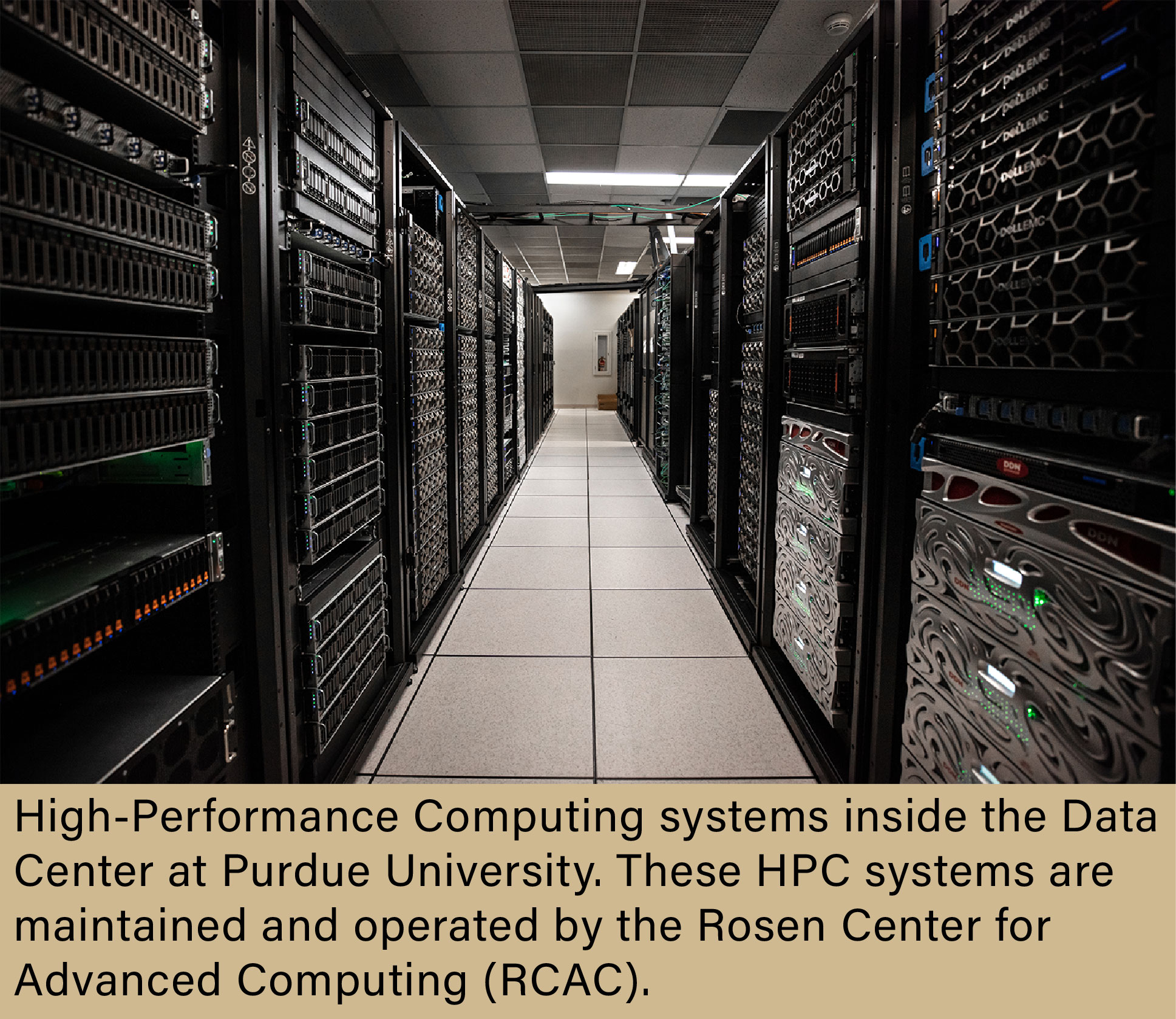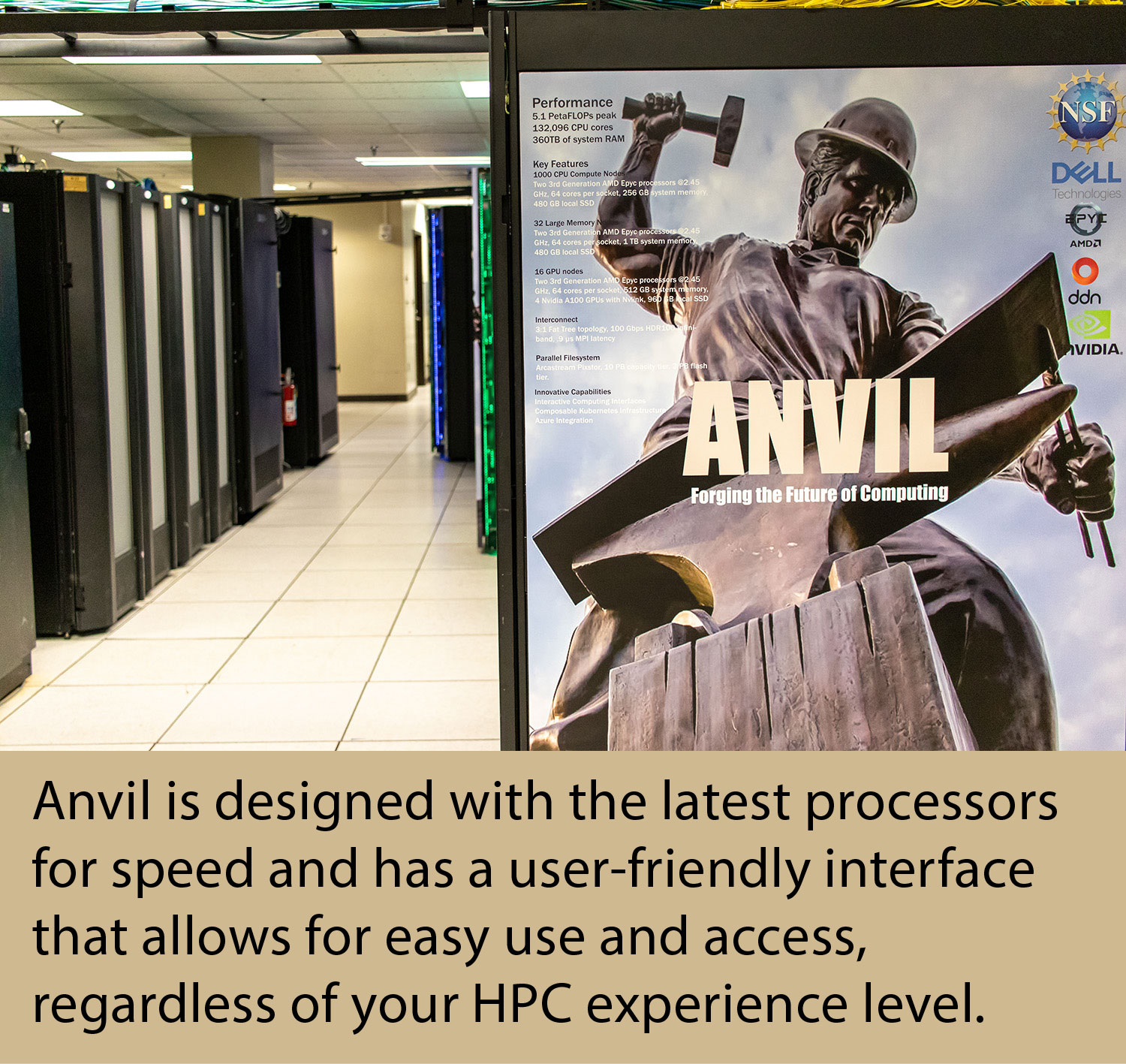Why HPC?
High-Performance Computing (HPC) refers to the use of powerful computers and advanced software tools to perform complex calculations and simulations that would be difficult or impossible using conventional computing resources.
HPC can offer significant benefits for a wide range of applications. While it may not be necessary for every project, HPC is a valuable tool for those who want to spend less time waiting and more time doing.
Is HPC for Me?
Do you want to analyze and store large data sets, test a scientific theory, or complete your research faster than ever before? If so, then High-Performance Computing is for you!
While HPC is often associated with scientific research and engineering, it can be useful across many different fields. Business, finance, healthcare—these are but a few sectors that can benefit from using HPC. Some reasons you may want to use HPC include:

- Improved speed and efficiency: HPC allows you to perform calculations and simulations much faster than you can on a regular desktop computer or laptop. This lets you complete tasks quickly, save time and money, and make more informed decisions.
- Ability to handle large datasets: HPC can process and analyze large amounts of data more easily than conventional computers, which is vital in many fields, including data analytics, machine learning, and artificial intelligence.
- Flexibility and scalability: Users can scale to much larger problem sizes and configurations when running on HPC. HPC resources now also include purpose-built accelerator technologies such as GPUs for modern compute-intensive workloads.
Why Anvil as your HPC Choice
No matter your HPC experience level, with Anvil, you can complete your research with record speed and ease, allowing you to drive your project into the future.
Anvil is an extremely powerful computer system at Purdue University that researchers, students, and those in industry can utilize for all their HPC needs. With more than 1,000 powerful computer nodes that can all work together to solve big problems, Anvil completes your research tasks at scales and speeds that would be impossible on a regular computer.
A node is a basic building block of a computer system—each one has its own processor, memory, and storage. On Anvil, these nodes are all connected via very high-speed connections, meaning they can perform many tasks in parallel at the same time. This interconnectedness allows for breakneck processing speeds, which means you can perform large-scale computations in a fraction of the time.
Think of it like this: On your desk sits an expensive, personal computer. For daily tasks, it is very fast—you never have to wait for anything to load or work as it should. Now imagine you have a research project involving complex and data-intensive simulations. To run these simulations using your personal computer, it could take months or even years to achieve a result. Anvil is like taking your personal computer, combining it with 1000 other high-level computers, and utilizing all that power for your project. With the Anvil supercomputing system, the simulations that would take months or years can now be completed in days or weeks.

Not only does Anvil reduce the number of hours spent waiting on research results, it also helps with your data management. Anvil includes a range of tools for managing and analyzing data, including large-scale data storage and data transfer capabilities. This is crucial for data-intensive research projects. Instead of worrying about where you will store your data, Anvil allows you to keep it all in one easily-accessible place.
Another major benefit to working on Anvil is its ease of access and use. Anvil is accessible through a web browser for submitting and managing jobs, as well as launching various interactive scientific applications that you may be familiar with as desktop tools, e.g., Matlab. This is enabled by its integration of the Open OnDemand portal developed by the Ohio Supercomputer Center. This ease of access gives Anvil the edge over other HPC resources. From Business and Bioinformatics to Sociology and Psychology, Anvil is optimized with a full suite of advanced software and has the capability of integrating more programs based on your needs. Because of this user-friendly interface, even those with little to no HPC experience can easily take advantage of the full capabilities that Anvil can provide.
Overall, Anvil is an important resource for researchers, students, and industry partners nationwide who are looking to access powerful HPC capabilities. Its high-performance computing nodes, parallel processing capabilities, data management and storage tools, and user-friendly interface make it a valuable resource for a wide range of projects across many fields. No matter your HPC experience level, with Anvil, you can complete your research faster and easier than ever before.
Are you ready to start your Anvil journey and propel your research forward using the power of HPC? Click here for details on how to get started!
Anvil is supported by the National Science Foundation under Grant No. 2005632.
